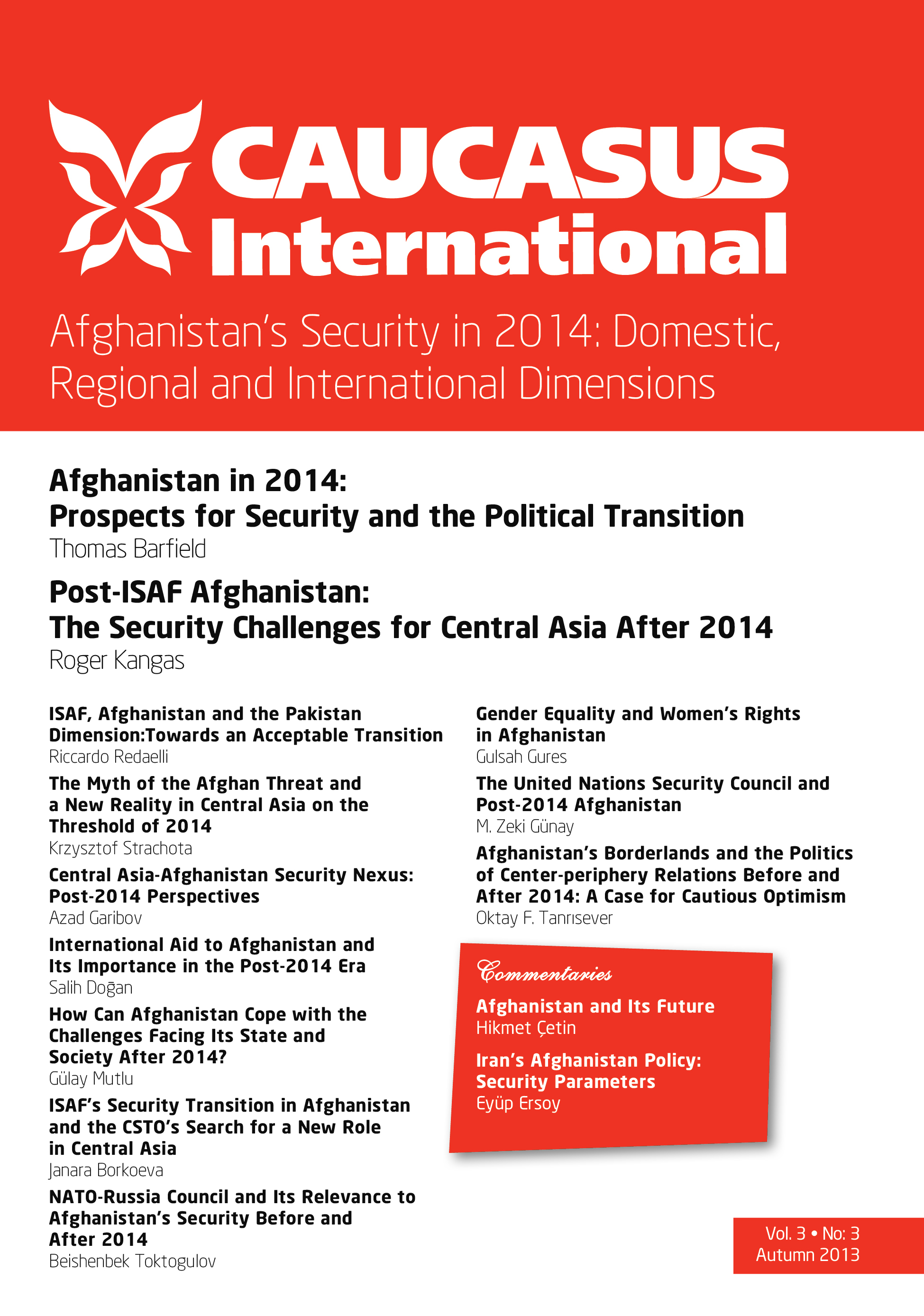ISAF’s Security Transition in Afghanistan and the CSTO’s Search for a New Role in Central Asia
The article discusses the impending withdrawal of the International Security Assistance Force (ISAF) from Afghanistan and its possible impacts on the Central Asian region. As has been widely accepted, and as the author of the paper agrees, the main challenge is will be security. This is because Afghanistan’s current government is not considered stable or legitimate by the majority of the population. Therefore, many experts predict that the Taliban will return to the power following the withdrawal of ISAF forces from Afghanistan, and will spread their influence to Central Asia. Additionally, after the withdrawal, along with the ethnic Uzbek and Tajik radical terrorist groups in northern Afghanistan, international Jihadist organizations such as the Islamic Movement of Uzbekistan, Hizb-ut-Tahrir, Tabligi Jamaat, Muslim Brotherhood, Jamaat Ansarullah, or Jundullah will operate more freely on the ground. At this juncture, a serious question arises: how will regional countries, particularly Russia, respond to such threats? Accordingly, the article discusses the response of the Collective Security Treaty Organization (CSTO) to the possible destabilization of Afghanistan and the Russian policy in Central Asia in the light of the ISAF coalition’s withdrawal. CSTO is seen as a military-political organization led by Russia to oppose or balance NATO in the Central Asia. As such, NATO’s enlargement reduces Russia’s traditional sphere of influence, and vice versa. In this sense, in the absence of a strong NATO presence, CSTO is planning to fill the vacuum by building up its military capacity, taking preventive measures to ensure regional security, and providing support to Afghanistan to enable it to stabilize as a peaceful, sovereign and independent state free of terrorism and drugs. The paper concludes by arguing that regardless of the benefit for the individual countries in the region, Russia is pushing the CSTO to enhance its own influence and interests in Central Asian region.
Latest news
- 03/17/2020 Call for Submission: “Non-Alignment Movement and Its Perspective in International Affairs”. Deadline: 1 July 2020 2624 views
Popular articles
- 02/24/2020 The Role of Irredentism in Russia’s Foreign Policy 2535 views
- 02/24/2020 Construction of sub-national identity vis-à-vis parent state: Gagauz case in Moldova 2218 views
- 02/24/2020 The Conflict in Ukraine - The Geopolitics of Separatism and Divergent Identities (Commentary) 2072 views
- 02/24/2020 The Role of the Soviet Past in Contemporary Georgia 2044 views





